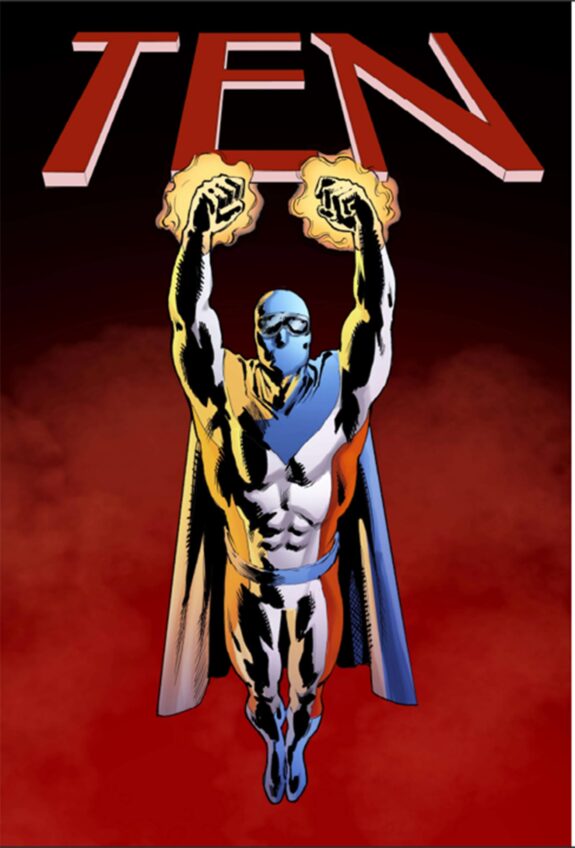
Opening this Friday in theaters nationwide, “Denial” is a film based on true events in the life of author, historian and scholar Dr. Deborah E. Lipstadt, Dorot Professor of Modern Jewish and Holocaust Studies at Emory University in Atlanta. In 1996, Lipstadt was sued for libel by British author David Irving because she characterized him as a Holocaust denier and right-wing extremist in her 1993 book “Denying the Holocaust: The Growing Assault on Truth and Memory.”
Directed by Emmy Award-winner Mick Jackson (“Temple Grandin”), “Denial,” which was filmed primarily in London and stars Academy award winner Rachel Weisz as Lipstadt and Timothy Spall (“The King’s Speech”) as Irving. Her on-screen British legal team includes Andrew Scott (“Spectre” and “Alice Through the Looking Glass”) as solicitor Anthony Julius and Tom Wilkinson (“Snowden” and “Selma”) as barrister Richard Rampton.
Because Irving sued Lipstadt in the U.K., the burden of proof was on her and her lawyers to prove the essential truth that the Holocaust did happen. Her legal team’s strategy was to prove that, without Lipstadt or any Holocaust survivors being called to the stand.
In Boston recently to promote the film, Lipstadt spoke to the Banner about Holocaust deniers, the timing of the film and what she hopes are audience takeaways.
Prior to this film, I hadn’t heard about Holocaust deniers. How and where did this idea come from?
Deborah Lipstadt: Holocaust denial is a form of anti-Semitism. Why else would you deny the Holocaust but out of a contempt for Jews, an upset that Jews seem to benefit even though they lost one out of every three Jew alive? It would be like anybody who said, “Oh slavery, come on. They had a house to live in. They got three squares, some got two squares. They sat around at night singing all those songs.”
You’re not denying that there was slavery. No one could argue that, unless they’re doing it out of a racist nature, either overtly or covertly. It’s a form of anti-Semitism coupled with a certain adulation of Nazism, certain adulation of Hitler and neo-Nazis. David Irving was completely transfixed by it. “Completely transfixed” might be too strong. I don’t want to get sued for libel again, but he clearly — in his books, in “Hitler’s War” — to my mind, had a great reverence for Hitler. And often — and as in the case of David Irving — [a reference for] racism, because deniers will say, “Every time we talk about the natural superiority of white people, we’re told that’s Nazi science, and Nazi science led to the Holocaust. That’s what we’re told. So you see the myth of the Holocaust is used to keep us from making the argument about the natural superiority of white people.” So, you get the anti-Semitism and the neo-Nazism/adulation of Hitler.
The timing of this film is unbelievable. Was it by design?
DL: Oh, God no. You know how long it takes to plan a movie, and to schedule a movie? … You’re not the first person to suggest, although you didn’t say it explicitly, that this is about the American presidential election. I think it’s much more than that, sadly. We live in an age of, “I’ll have my own facts. Thank you very much, ma’am.” The birther controversy, what we saw last Friday [September 16, 2016] which led to The New York Times to use ‘lie’ in a headline — that was pretty striking.
What do you hope that audiences walk away with from seeing the film?
DL: I think one of the messages that I so hope people get from this is, There’s fact and there’s opinion. But if it’s an opinion rooted in a lie, if I said to you, “It’s my opinion that the earth is flat,” you’d think I was crazy, certainly as a respectable journalist, certainly as a respectable person. You’d say, “This is a crazy person.” This movie — fact, opinion, lies, are message one.
I hate movies with messages, so I don’t want to use messages, but ‘takeaway,’ maybe that’s a better way. I would hope that that would be a takeaway. There’re not two sides to every opinion. Number two, I don’t want to argue and I don’t want to suggest bullying on the schoolyard, since most people will never confront someone who commits genocide. Most people will never encounter that. They have to deal with the prejudice, stereotyping and discriminatory attitudes that they will encounter. If you see something, say something. Counter it.
It seems like your whole life — from your education to studying abroad, to your family, to attending summer camp as a teen — prepared you unknowingly for this trial, and this moment in your life.
DL: When Rachel [Weisz] and I first spoke on the phone, one thing that she said toward the end that I wrote down, is, “Justice demands trouble. I don’t think this came to you by chance.” But I do think on some level you have to be prepared.
How did you feel seeing your life unfolding in front of you during the filming, especially during the courtroom scenes in London?
DL: It was very surreal. First of all, it brought back things. It brought back the fact that I couldn’t speak. I think Rachel is great in so many different ways, but she’s talking with her eyes. She’s talking with her face. She’s talking with her expression, and with that frustration. There was a certain parallel. I was on the set with nothing to do. It was sort of like, “Here we are back at the trial.” There were so many parallels of bringing me back to those moments that were very powerful.
How did your life change after the trial?
DL: I don’t think I’ve changed. Now, I’m much more in demand. What happened is that I’m the same person, same irreverence. Rachel calls me a pain-in-the-ass person, lovingly. It’s a high compliment. But I was given a bigger megaphone so that even though I’m the same person, saying the same things, I have a bigger responsibility to get it right.
What’s next for you?
DL: Well, I have had two books come out since this one, and I’m writing a book now on anti-Semitism. I’m using all the questions students have asked me about anti-Semitism and I’m writing it in a form of letters to a student. I’m calling it, “The Anti-Semitic Delusion: Letters to a Student,” because anti-Semitism is a form of prejudice, which is a delusion. Hopefully, I’ll get that done by January or February 2017.






